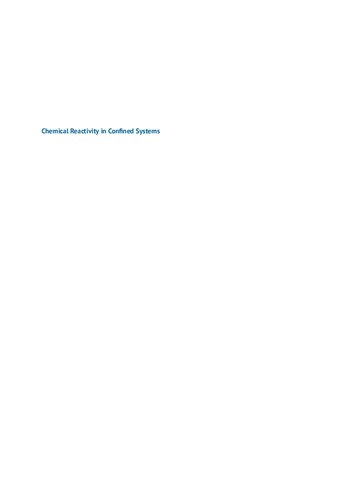

Most ebook files are in PDF format, so you can easily read them using various software such as Foxit Reader or directly on the Google Chrome browser.
Some ebook files are released by publishers in other formats such as .awz, .mobi, .epub, .fb2, etc. You may need to install specific software to read these formats on mobile/PC, such as Calibre.
Please read the tutorial at this link. https://ebooknice.com/page/post?id=faq
We offer FREE conversion to the popular formats you request; however, this may take some time. Therefore, right after payment, please email us, and we will try to provide the service as quickly as possible.
For some exceptional file formats or broken links (if any), please refrain from opening any disputes. Instead, email us first, and we will try to assist within a maximum of 6 hours.
EbookNice Team

Status:
Available4.5
15 reviewsAn insightful analysis of confined chemical systems for theoretical and experimental scientists
Chemical Reactivity in Confined Systems: Theory and Applications presents a theoretical basis for the molecular phenomena observed in confined spaces. The book highlights state-of-the-art theoretical and computational approaches, with a focus on obtaining physically relevant clarification of the subject to enable the reader to build an appreciation of underlying chemical principles.
The book includes real-world examples of confined systems that highlight how the reactivity of atoms and molecules change upon encapsulation. Chapters include discussions on recent developments related to several host-guest systems, including cucurbit[n]uril, ExBox+4, clathrate hydrates, octa acid cavitand, metal organic frameworks (MOFs), covalent organic frameworks (COFs), zeolites, fullerenes, and carbon nanotubes. Readers will learn how to carry out new calculations to understand the physicochemical behavior of confined quantum systems.
Topics covered include:
Perfect for academic researchers and graduate students in theoretical and computational chemistry and confined chemical systems, Chemical Reactivity in Confined Systems: Theory and Applications will also earn a place in the libraries of professionals working in the areas of catalysis, supramolecular chemistry, and porous materials.